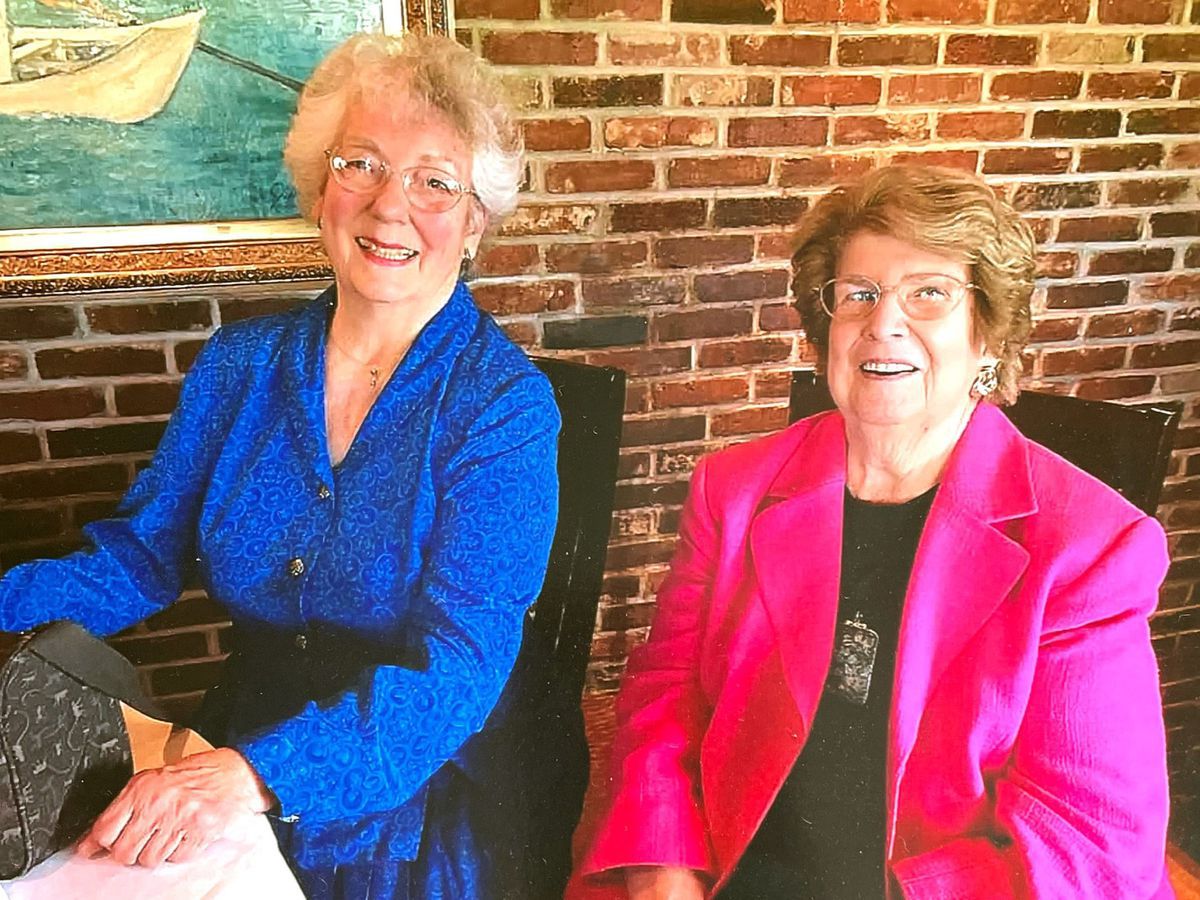The two met as toddlers in 1939, shortly after Brandt’s parents bought a house in Merion on Raynham Road, four houses down from the Krumrines. The girls’ nannies would take 2-year-old Jane and 3-year-old Susy for walks. They fed the ducks in a neighborhood pond, picked violets, rode their bicycles together.
As they grew older, their families became close; Brandt still refers to Krumrine’s father, a former bank executive, as “Uncle Charlie.” Krumrine, who described herself as “an only child of only children,” became an honorary Brandt.
Five days a week, the girls took the train together to go to their separate high schools, Krumrine at Baldwin School and Suzy at Agnes Irwin, and when they weren’t in class, they chatted on the phone incessantly. At University of Pennsylvania and Vassar, they spent time together when they had vacations.
Like her parents, whose parties were featured in The Inquirer’s society pages, Krumrine threw great affairs. Sometimes, guests would parade out the front door, donning hats from the women’s collection (from top hats to those shaped like flower pots), and march down the driveway in through the kitchen door, singing and carrying whatever was handy — vases or candlesticks.
For Krumrine’s 50th birthday, Brandt and Scott Tuttle, another longtime friend, planned a surprise party on a vintage dining car rented out for special occasions. That meant convincing Krumrine to come to 30th Street Station by conjuring a fake meeting with a friend on the platform.
The surprise was almost ruined when an electrical failure shut down all the trains, and their friends — hiding throughout the station in the pre-cell-phone era — remained stranded until the power issue was resolved. Finally, it pulled into the station with a banner: “Welcome to the Jane Train. Happy Birthday Jane,” and her friends emerged.
“Jane, instead of being helpful and seeing how I was, was hysterical [with laughter] and goes next door and gets [her friends] and says, ‘You have got to see this. She’s just fallen in her drawer,’ ” Brandt recalled.
Brandt and Krumrine made friends from around the world through these trips and Krumrine’s later career in New York at a global insurance brokerage. When the guests came to Philadelphia, the women would tell them about Philadelphia history as they drove through the city bickering about historical details. Back at her home, Krumrine put yellow sticky notes on everything so her guests would know what they could or couldn’t use.
In the mid-1980s, Brandt convinced Krumrine to try Overbrook Presbyterian Church, where she’d been a member since childhood. Krumrine would then ferry Brandt to church in her bright-red Mini Cooper, eventually parking in a handicapped space near the side door when it became difficult to walk long distances. She would rest for a moment on one of the pews near the entrance, then walk to the friends’ favorite spot four rows in front of the pulpit.
When they moved in, Krumrine was using oxygen at night to cope with her COPD. But problems quickly escalated. Krumrine had to carry oxygen with her everywhere. She started using a walker. By the fall of 2019, she could no longer go to church; it was too hard to navigate the 125-year-old building.
Namkee Choi, a gerontologist at the University of Texas who has studied depression in nursing home patients, said that for people with a close bond, sudden separation is the “end of the world.” Even if they are in the same facility, it makes depression more severe. Medical problems, including COPD, can worsen, she said.
When the nurses could accommodate her, Brandt called. Sometimes she would reminisce, sometimes she would pray. Every time she tried saying the Lord’s Prayer, she’d break down and have to ask the nurse to finish.
Because Krumrine didn’t have immediate family, it was Brandt who would be making all the calls and arrangements, working with the executors to sort through Krumrine’s room. They offered the heirloom furniture to friends, and Brandt saved some mementos for herself: two pairs of clip-on earrings; a strand of pearls; pads of ever-present sticky notes; and seven scarves — paisley, flowered, polka-dotted.
With the pandemic restrictions, Brandt and Adam Hearlson, their minister, organized a Zoom service to remember several congregation members who died during the pandemic. More closure came in June, when Brandt and friends were able to have a burial service at West Laurel Hill Cemetery. There, her urn was lowered into the grave and Krumrine’s friends dropped red roses on top.
This month, 12 friends gathered, including a senior at Haverford College, someone whose parents and grandparents were close friends with Krumrine. Another participated from Germany. Several were in London. Most attendees met through Krumrine’s legendary parties, where she liked to connect people.
This content was originally published here.
